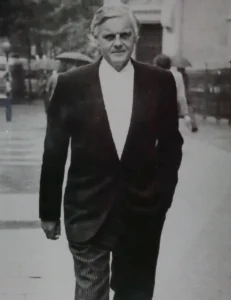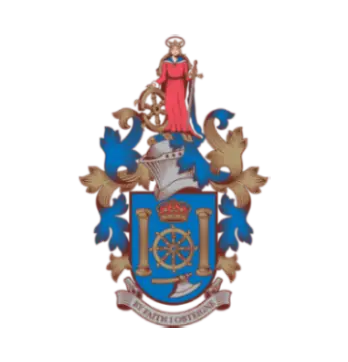Published in The Turner Magazine, July 2018
Liveryman Michael Neill writes for himself and his brother, Deputy Master Andrew Neill, following the death of their father. Past Master Sir Brian Neill, QC was a member of the Turners’ Company for seventy years and for the last two of those years was the Father of the Company.
 “Many of you will have read my father’s recollections of his life, in his piece, published in The Turner in June last year.
“Many of you will have read my father’s recollections of his life, in his piece, published in The Turner in June last year.
In many ways it is difficult to add anything to this elegant assessment of his own life. It concentrates on what he saw as the important episodes of his long life. What it reveals is a man who placed the events and formative characters in his life as the main actors and leaves his own part, in the narrative, largely unremarked upon.
This modest assessment of his own influence on the world that he lived through was typical of the man who was so blessed with talents yet so unassuming in their attributes.
For other details of his life, both The Times and The Telegraph carried lengthy obituaries, The Guardian has a shorter piece on-line, The Society for Computers & the Law and the Academy of Experts both published obituaries.
Rather than repeat these facts I offer a few thoughts of how I saw my father.
I have always been fascinated, perhaps in awe, of his early family life. His elderly father, who died when he was thirteen, and his young mother must have provided an inspiring home life for him and his three siblings to grow up in. Quite what alchemy was responsible for these four young minds to flourish, I have never fathomed.
By the time they were teenagers each had already been set on a course to excel, initially in school life and later in their chosen careers.
I am not sure that my father was ever a teenager in the modern use of the word. By the age of seventeen he was shouldering some of the burden of looking after the family. Before his schooling was over, war had broken out and at nineteen he had already joined-up.
Rather than planning a 21st birthday celebration, he spent it in Swindon hospital, having been repatriated after being injured by a mortar in one of the fierce battles that followed the Normandy landings.
By the age of twenty-three, when he was demobbed, he had seen several of his platoon die in action, had been witness to the horrors of the camp at Bergen Belsen, and attended the Nuremberg trials. Experiences, I have always imagined, that reinforced a need for him to better himself and the world around him. Until recently these were not events he spoke about. He had successfully harnessed those emotions into a desire to do something about the injustices he had been witness to.
From the year he re-started at Oxford – this time to study for a law degree – until he was into his 80s and had to spend a few days in hospital with a hip replacement, he said that he’d never taken a day off sick. Not one. He felt there was much to do and he didn’t want to waste it. His work, whether at the bar, on the bench or much later travelling with the Slynn Foundation, consumed at least twelve hours a day, often on the weekends as well. He took the occasional holiday, when he would unwind.
He and my mother, Sally, would go on culture tours to the cities and classical sights of the Mediterranean with the occasional far-flung trip to China or South America. As far as family holidays were concerned, he had been persuaded by my mother that a holiday house on the Isle of Wight would be the perfect place for young children to spend their summers. An inspired idea that has endured, meaning his grandchildren have also reaped the benefits of a seaside holiday home.
His ability to stay focused on some complex, conceptual legal point until he had distilled its essence into a few elegant phrases was matched by his ability to have sound undisturbed sleep, whatever his pressures. He anticipated the current thinking that restorative sleep was vital in prolonging an active mind.
He had also foreseen the importance of the computer age and how its capabilities would transform the future – he was a lone voice in the legal world in realising its capabilities. In the early 90s he gave me one of his cast-off computers, which I had no idea how to use!
He pursued an active life for 94 years. The day before his fall he had taken a bus to the supermarket, illustrating his independence that was still an essential part of his life.
His humour and humanity will be sorely missed by his family and many friends.”
Sir Brian Thomas Neill
2 August 1923 – 24 December 2017
Master Turner 1980-81
Liveryman 1955
Freeman by Servitude 18 December 1947
